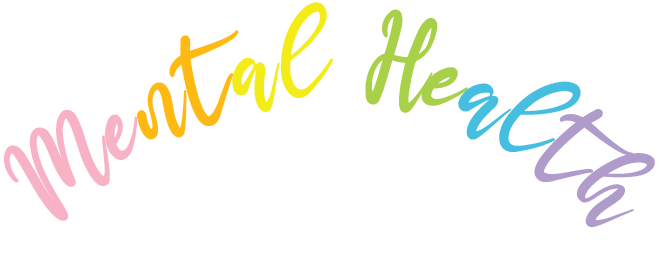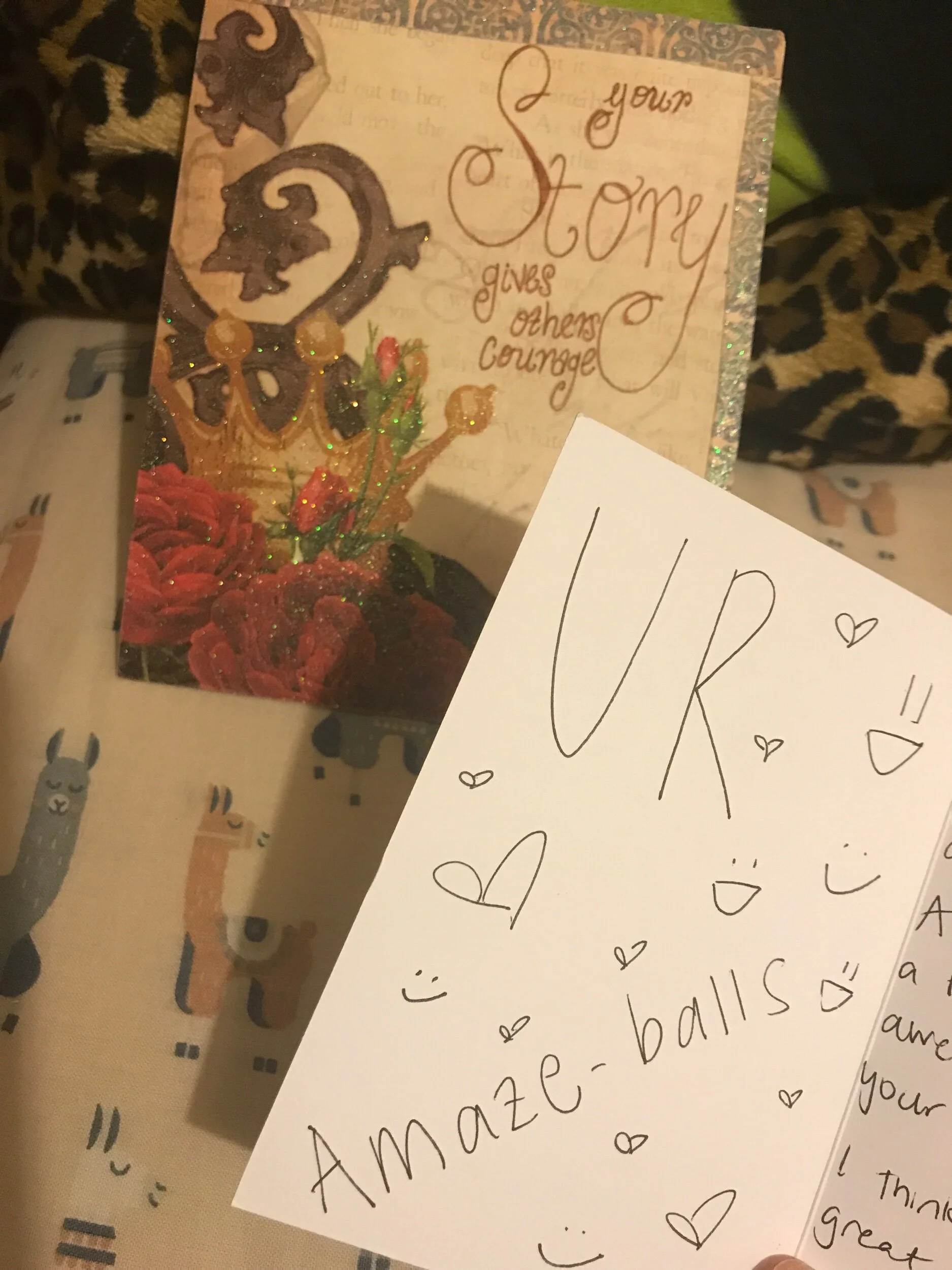Managing Relationships in Depression
By: Kiana Blake-Chung
A couple years ago I was having a state of the union meeting with one of my friends. That’s what I call a specific heart to heart where we talk about the state of our friendship, and how we can make it better. I try to have these periodically, because I don’t want my friendships to fizzle out without any effort to maintain them. My friend said that I was aloof and she felt like our friendship was a thing for me to check off on a to-do list. I knew immediately what she was talking about because she was absolutely right.
I was depressed, and as such, all I could see in front of me was my own pain. I was consumed with it; it was a lens through which I viewed the entire world and I couldn’t escape that. The problem was, I hadn’t communicated that to my friend and she felt neglected. After explaining the situation, she was able to extend grace to me and I was able to meet her halfway and put more effort into our friendship.
Planned an outdoor dinner with my friend.
Since then, I‘ve compiled a list of tips to get better at maintaining my relationships. First things first: if you are actively suicidal in your depression, this post is NOT for you. Your main focus is rightfully just trying to stay alive. In fact, I wrote a blog post that you should send to your friends, because it is important that they know how to best support someone who is suicidal. When you have the capacity, you can focus on others but it’s best that you take the time to attend to your own mental state. If you’re anybody’s friend, I recommend reading that post to find out how to support someone in a mental health crisis.
If you’re somebody who deals with chronic depression that lasts for months on end, and relationships are important to you, self-isolating is not an option because you will quite literally be isolating forever. I’ve learned how to function in depression, because life does not stop and while I make sure to slow down to honor my feelings, coming to a complete stop is not an option.
Be Honest with Your Friends
The primary step, the most obvious, and surprisingly often neglected step, is being honest about your mental state with your friends, specifically your close friends. When people understand where you’re at mentally and what you’re capable of extending in a friendship they are more understanding about your commitment level to the friendship. My friend felt neglected because I hadn’t communicated that I was struggling. My reasoning was always sound: I didn’t want to worry my friends by reaching out in crisis. This is understandable. The majority of my friends were present in the direct aftermath of my suicide attempt. The looks on their faces will haunt me probably forever and I do my best to not be the cause of their worry again. I don’t enjoy feeling like a burden but it’s a natural reaction when every conversation revolves around you for a period of time. Listen to me closely: your true friends will not view you as a burden. By not discussing my depression with them I was trying to not be made the subject of conversation, the cause of worry for my friends. It was counterproductive, because in not reaching out I was isolating myself from them and my relationships were becoming strained.
All dressed up for my best friend’s virtual graduation from Harvard Law.
Don’t give in to paranoia
The second tip is to believe the best of your friends. This may or may not be applicable to many people, but I suffered from a great deal of paranoia when I was struggling the most pre-diagnosis and even post-diagnosis. The thoughts that plagued me the most were beliefs that my friends didn’t like me and were conspiring against me to contribute towards my unhappiness. (These thoughts were mostly borne from frustration as they wanted me to leave a toxic relationship that I was in but I wasn’t ready to accept that what they were saying was in my best interest.) I didn’t know who I could trust. It took me a while to realize that those feelings of paranoia were symptoms of the illness I was struggling with and that I should do my best to rewrite those thoughts.
Remind Yourself that you are Loved
When I was struggling the most with BPD every tiny interaction, for example, a friend not picking up the phone, felt like rejection and abandonment. It was very difficult, but the affirmations I had to hold onto were: my friends love me and want the best for me. My friends are busy individuals and may not always have time for me but that doesn’t mean they love me any less. When I really need help coping I write out lists that remind me of everything my friends have done for me, so I can look at the proof that they love me and marinate on that truth instead of the lies my illness feeds me. Sometimes, feeling unloved, or even just like you’re a burden, prevents you from reaching out to others. Those tips help me to remember that my loved ones are always in my corner and willing to extend support.
Two letters from friends who have become penpals during this quarantine season.
Strategize Ways to Be a Good Friend
My third suggestion is to define clear actions you can take to better your friendships. If you’ve heard of the five love languages, it’s similar to that. Love your friends the way they need to be loved. It’s imperative to schedule regular time with friends, especially as an adult. For my friends whose love languages are words of affirmation, I’ve taken to sending them letters in the mail regularly. For group hangs with my high school friends we play games together on the bunch app, or the Among us app. Virtual brunches, virtual writing parties, virtual creative workshops etc are all some different activities that I’ve participated in to get some regular face time with my friends since Covid began. When the weather is nice, I’ve enjoyed getting takeout and eating in parks or a backyard with a friend or two. It’s very easy to feel isolated, so planning regular get togethers are a necessity. Figure out what works for you, whether that is FaceTiming a friend to check in every week, every month, or every other month. Most of my FaceTimes are on the every other month frequency because there is usually no new news to share. Communicate the expectations you and your friend have for friendship.
Even though my friends wrongfully murdered me in Among Us, I still love them.
My friend Anna showing off her new quarantine hobby to me on FaceTime.
Take Notes to Remember Important Things
There’s a viral tweet that circulates every couple months that says “why does nobody talk about the effect that depression takes on your memory?” I don’t know the science behind it, but my memory got so much worse when I was struggling with depression, and these memory problems have persisted even in periods of recovery. One of the ways I combat this is by writing everything down, my final suggestion. I take notes when I talk with my friends, just to remind myself what people are going through.
My notes app where I keep track of my friend’s needs.
It sounds selfish, but our worlds revolve around us. It is human nature to think primarily of our own problems and forget that other people have things going around them as well. If my friends tell me that they’re looking for a new job, I add that to my prayer list so I can remember to keep them in prayer. And I set reminders in my planner and phone to ask them about it every couple weeks. In a way my friend was right, because if I didn’t write things down, they would entirely slip my mind, even though they are no less dear to me.
My sticky note situation that helps me remember things.
Invest in People Who Are Good for You
Giving energy to those you love when you haven’t got any energy to spare is in a way, sacrificial. It’s important that you know who to make that sacrifice for. Spending time around people who are only going to drain you or add to your problems isn’t very wise. Those people can wait until you feel a bit better. But spending time with others who are going to uplift you and encourage you is important. I promise you that making the effort to connect with those friends will be worth it. You don’t have to go through it alone, and you shouldn’t. With time and these tips, you’ll hopefully learn to manage how to not leave your friends hanging completely, even in your personal struggle.
How I’m tryna be with the homies when Corona is gone.
Special thanks to Blake Chung for editing.
If you find this post valuable and believe in the mission of Mental Health Tings and would like to partner with us financially, you can make a one time donation by buying me a coffee!
You can also make a recurring monthly donation by signing up for our Here for the Blog $10 a month Patreon Tier.
All donations go toward the subscription cost of maintaining the website as well as payment for the various guest bloggers.
Thank you!








